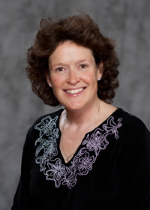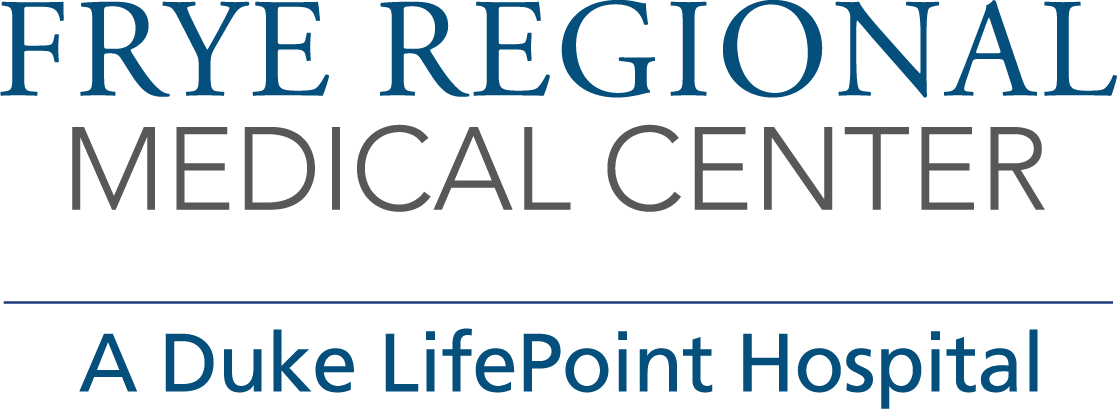Breast Cancer
TO SCHEDULE YOUR MAMMOGRAM, CALL 828.315.3390
Your Journey, Our Expertise. Personalized Breast Cancer Care.
About 12% of American women will be diagnosed with breast cancer at some point in their lives. This means there is a 1 in 8 chance she will develop breast cancer. At Frye Regional Medical Center we want all the women in our community to know their risk, to recognize the signs and symptoms, and to understand the importance of self-checks and early detection.
If you’re older than 40 or have a family history of breast cancer, and have never had a mammogram, call us today to schedule your baseline exam. And once you start, don't stop. Perform monthly self-exams, and no matter how busy life gets, make time for your mammogram. It could save your life.
TAKE A BREAST HEALTH ASSESSMENT
Tips for Prevention and Detection
Breast cancer can affect anyone, but some women are at higher risk due to specific factors. Knowing these risk factors is the first step in prevention and early detection.
These include:
-
-
- Personal History: Women with a history of breast cancer have a 3-4X increased risk of developing a new breast cancer, unrelated to the first one, in the other breast or in another part of the same breast.
- Family History: Having a mother, sister or daughter who has (or has had) breast cancer increases your risk for developing the disease. The risk is even greater if your relative had cancer in both breasts or developed breast cancer before menopause.
-
-
- If a member of your family had certain types of non-breast cancer, such as cancer of the ovaries, cervix, uterus or colon, this could also increase your risk of developing breast cancer.
-
-
- Age: About 77% of women diagnosed with breast cancer each year are over age 50, and almost half are age 65 and older.
-
-
- Women who have their first child after age 35 or never have children.
- Women who started menstruating before age 12.
- Women who begin menopause after age 55.
-
-
- Abnormal breast exam results: Women with a previous breast biopsy result of atypical hyperplasia, or those with a previous abnormal breast biopsy indicating fibroadenomas with complex features, hyperplasia without atypia, sclerosing adenosis and solitary papilloma.
-
-
- Carriers of alterations in either of two familial breast cancer genes called BRCA1 or BRCA2.
-
-
- Race: Caucasian women are at a slightly higher risk of developing breast cancer than are African American, Asian, Hispanic and Native American women.
- Health: Overweight women who have excess caloric and fat intake (especially post-menopause) are at higher risk for breast cancer.
-
-
- Women who have two to five alcoholic beverages a day are 1.5 times more likely to develop breast cancer than women who drink no alcohol.
- Those exposed to excessive amounts of radiation, especially before age 30, are more likely to develop breast cancer.
- Women who use Hormone Replacement Therapy (HRT) for an extended period of time may be at risk of breast cancer. (Risk seems to return to that of the general population after discontinuing use for five years or more.)
-
-
- Other Factors: Certain women may be at higher risk for breast cancer based on other elements of their age and medical history.
-
-
- Women who have their first child after age 35 or never have children.
- Women who started menstruating before age 12.
- Women who begin menopause after age 55.
-
-
-
For people who display one or more of those risk factors, it is important to understand and be able to detect the symptoms. While breast cancer often has no symptoms in its early stages, the following symptoms may be present as a tumor develops:
-
-
- A lump in the breast or underarm that persists after your menstrual cycle
- A marble-like area under the skin
- Swelling in the armpit
- Persistent breast pain or tenderness
- Any change in the size, contour, texture or temperature of the breast
- A noticeable flattening or indentation on the breast
- A change in the nipple, such as an indrawn or dimpled look, itching or burning sensation, or ulceration
- Unusual discharge from the nipple
-
Men and Breast Cancer
According to the American Cancer Society, breast cancer occurs mainly in women, but men can get it, too. Many people do not realize that men have breast tissue and that they can develop breast cancer. Cells in nearly any part of the body can become cancer and can spread to other areas.
Certified Breast Care Navigator

FryeCare Outpatient Imaging's Certified Breast Care Nurse Kim Sherrill RN, BSN is specially trained in breast health. She is here to guide you if your mammogram has an abnormal result and will provide you with real-time results to your diagnostic mammogram. She is also available to answer your questions should you need to have a breast ultrasound or other breast imaging procedure.
For more information about early detection speak with a Certified Breast Care Nurse by calling 828.315.7020
LEARN MORE ABOUT OUR BREAST Health Services
Schedule A Screening Mammogram
To schedule a screening mammogram, call 828.315.3390.
FryeCare Outpatient Imaging Center
.jpg)
1781 Tate Blvd SE
Hickory, NC 28602
Phone: 828.315.7030
Fax: 828.315.7040
Mammography Fax: 828.315.5979
Hours of Operation
Monday - Thursday 7:00 am – 5:30 pm
Friday 7:00 am – 5:00 pm
Find a Provider
Some breast screenings may require a provider order. Talk to your provider or find one today.
